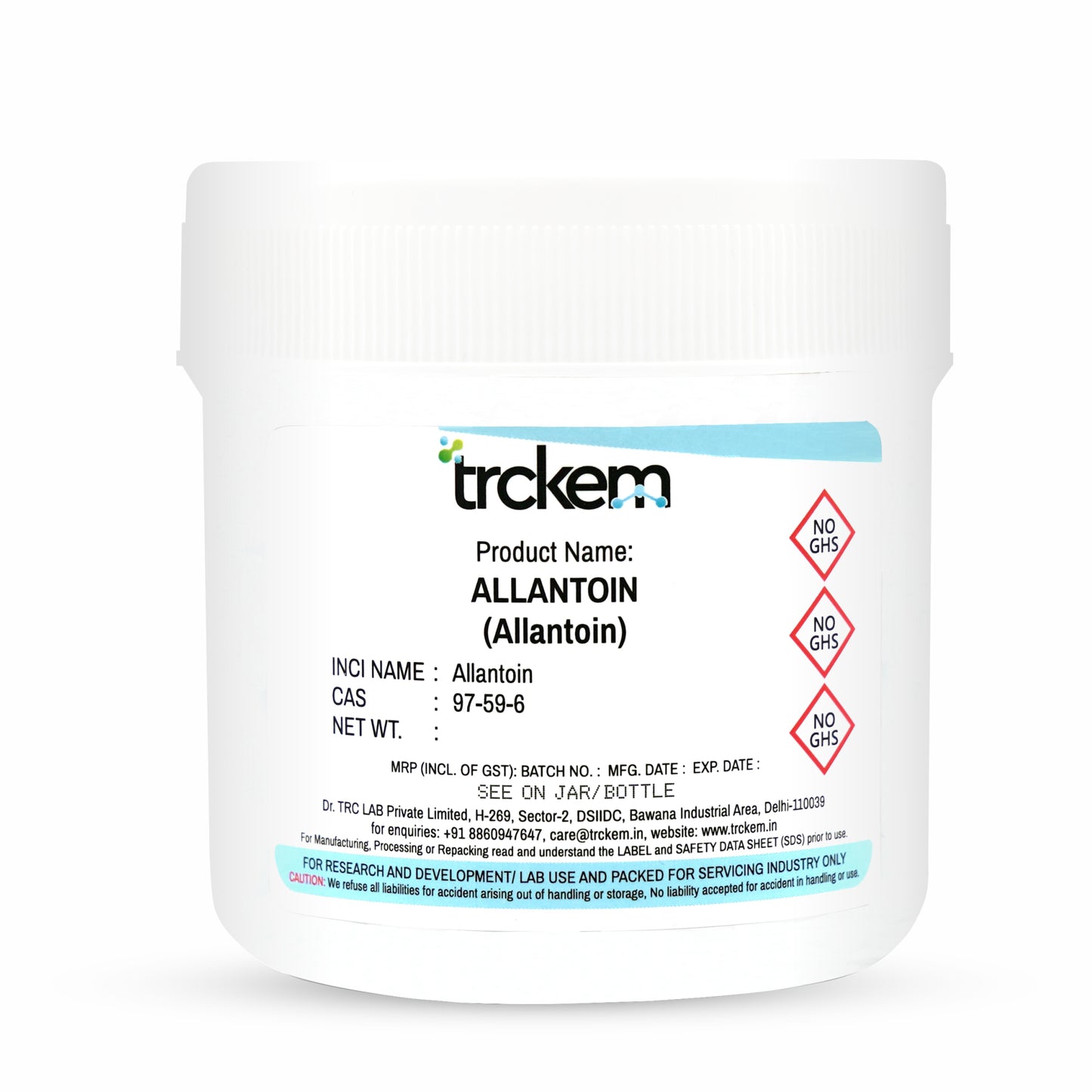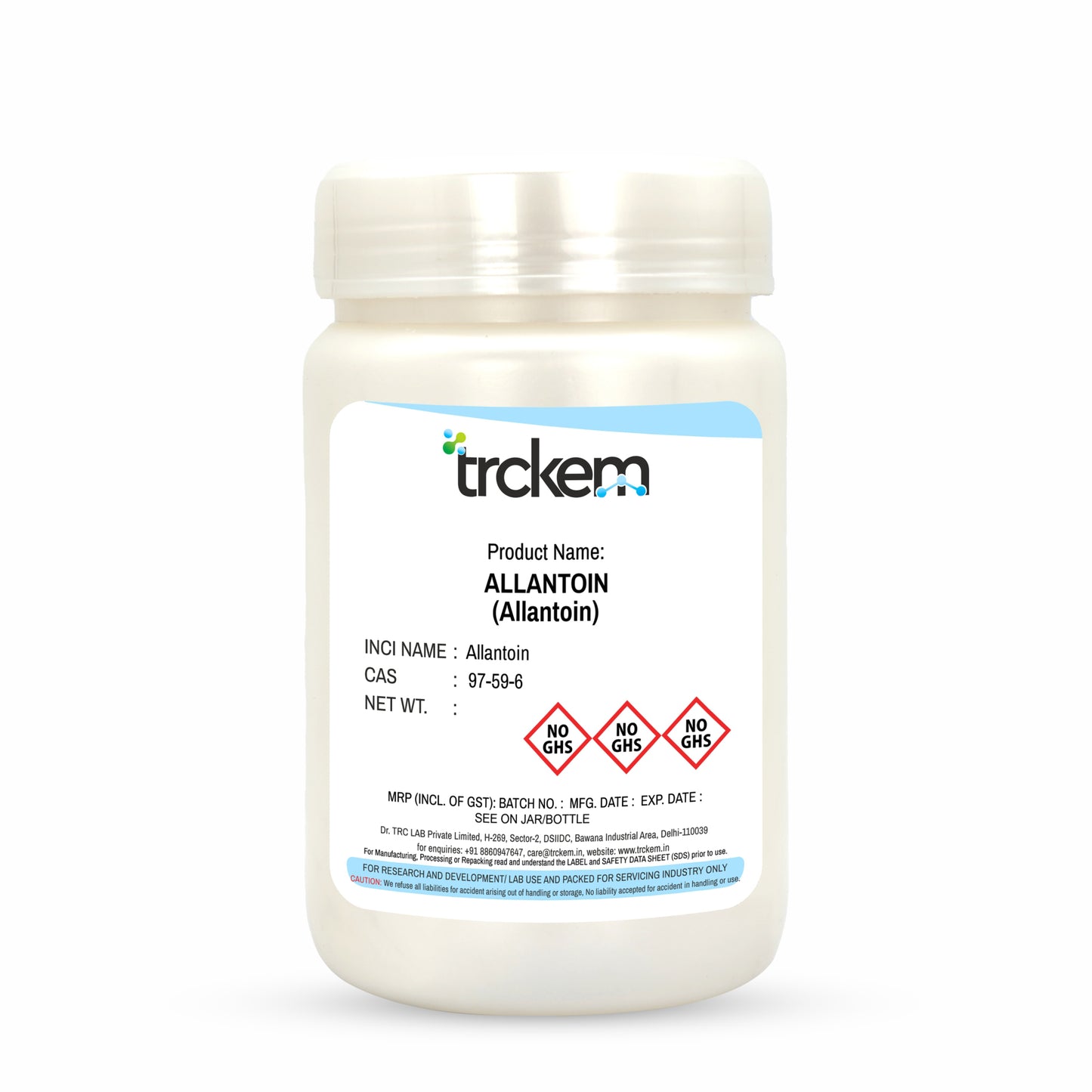

THE STORY OF ALLANTION

Allantoin: The Skin Soother in Every Drop
Allantoin is a gentle yet powerful skin-conditioning ingredient that promotes healing and comfort. Celebrated for its ability to soothe irritation, reduce redness, and encourage skin renewal, Allantoin is found in a wide range of personal care products — from face creams and lotions to aftershaves and baby care. It’s the quiet hero that helps skin look and feel healthier every day.

Derived from Nature, Perfected by Science
Traditionally obtained from the comfrey plant, Allantoin can now also be produced synthetically to achieve high purity and consistency. TRCkem’s cosmetic-grade Allantoin is refined through precise crystallization processes that preserve its bioactive soothing properties, ensuring stability, safety, and performance in every formulation.

Soften. Heal. Protect.
Allantoin enhances the skin’s natural healing capacity by promoting cell regeneration and reducing inflammation. It softens keratin, helping to smooth rough, dry, or flaky skin. Its calming effect makes it ideal for sensitive-skin formulations, after-sun care, and post-shave products. Combined with moisturizers, it helps maintain a soft, supple, and rejuvenated appearance

Trusted, Safe, and Globally Approved
Allantoin is compatible with most cosmetic systems and stable within a wide pH range (4–8). Recommended usage: 0.1–2%. Store in a cool, dry place away from moisture. Non-toxic, non-irritating, and fully compliant with global cosmetic standards (EU, FDA, REACH, and COSMOS). TRCkem’s Allantoin ensures your formulations deliver both safety and skin wellness.
Formulator’s Queries, We Answered
1. What is the CAS number and INCI name of allantoin?
The Chemical Abstracts Service (CAS) number for allantoin is 97-59-6, and its International Nomenclature of Cosmetic Ingredients (INCI) name is Allantoin.
2. What is allantoin?
Allantoin is a naturally occurring compound found in various plants, such as comfrey, and is also produced synthetically for use in personal care products. It is recognized for its ability to moisturize and smooth the skin.
3. What are the benefits of using allantoin in personal care products?
Allantoin offers several skin benefits, including:
Moisturization: Acts as a humectant, drawing moisture into the skin to keep it hydrated.
Exfoliation: Promotes the shedding of dead skin cells, leading to a smoother skin texture.
Soothing: Reduces skin irritation and sensitivity, making it suitable for sensitive skin types.
Healing: Enhances the skin's natural repair processes, aiding in the healing of minor wounds and irritations.
These properties make allantoin a valuable ingredient in various skincare formulations.
4. In which personal care products is allantoin commonly found?
Allantoin is incorporated into a wide range of personal care products, including:
Moisturizers and lotions: To enhance skin hydration.
Cleansers: To provide gentle exfoliation and soothing effects.
Acne treatments: To promote healing and reduce irritation.
Sun care products: To soothe sun-exposed skin.
Lip balms: To moisturize and repair chapped lips.
Shampoos and conditioners: To maintain scalp health and add moisture to hair.
Its versatility and efficacy contribute to its widespread use in the personal care industry.
5. Is allantoin safe for all skin types?
Yes, allantoin is generally considered safe and non-irritating, making it suitable for all skin types, including sensitive skin. However, as with any skincare ingredient, it's advisable to perform a patch test before widespread use to ensure individual tolerance.
6. How is allantoin sourced for use in personal care products?
While allantoin can be extracted from natural sources like the comfrey plant, the allantoin used in personal care products is typically synthesized to ensure purity and consistency. This synthetic allantoin is chemically identical to its natural counterpart and is safe for cosmetic use.




